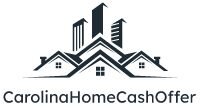Buying a house is probably one of the most significant financial commitments in most people’s lives. But remember, the final price tag goes beyond just the sale price. In the excitement of house hunting, it’s easy to overlook closing costs, which are those extra expenses that pop up when finalizing your real estate purchase. These closing costs can vary depending on your location and add up to a considerable amount in some North Carolina markets and are paid to complete a real estate transaction. Knowing the answer to this: “how much is closing cost in nc” is critical.
It’s essential to consider estimated closing costs to get a clearer picture of the total expenses involved in buying or selling a home. These estimates are crucial for budgeting purposes and can be calculated using online calculators and loan estimates.
North Carolina homebuyers typically bring around $3,406 to closing, according to ClosingCorp data based on 2021 statistics. Remember, “how much is closing cost in nc” depends on various factors, like the size of the loan, the location, and even the time of year. But understanding those fees and knowing how to potentially lower them can make a huge difference in managing your home buying journey in the Tar Heel State.
If you don’t want to deal with closing or other costs when selling a home in Charlotte or other parts of North Carolina, let us make you a cash offer for your home instead. Otherwise, read on to understand the implications of closing costs.

Table of Contents:
- What Exactly are Closing Costs?
- What Affects North Carolina Closing Costs
- North Carolina Programs to Help with Closing Costs
- Reducing North Carolina Closing Costs
What Exactly are Closing Costs?
Closing costs, or settlement costs as some people call them, consist of the fees and expenses paid to different parties. This can involve things like: real estate agents, lenders, attorneys, government agencies, and more, including attorney fees for managing legal aspects such as drafting documents and ensuring compliance with regulations. Basically, it’s a big chunk of change paid over and above your actual mortgage, kind of like tacking on an extra cost on top of a pricey concert ticket.
In North Carolina, these closing costs usually come in at about 1.1 percent of the purchase price, according to 2021 research from ClosingCorp. That’s a decent deal compared to some other states. But you still need to know what to expect, right?
Average Closing Costs You Can Expect in North Carolina
In the Tar Heel state, closing costs can include a mixed bag of fees, both for buyers and sellers. Buyer closing costs are the various fees and charges that homebuyers must pay when completing a property transaction. Here’s a rundown of the typical culprits that show up on a closing statement. As I said before, North Carolina’s closing costs are typically lower than the national average.
Closing Costs for Buyers
- Loan Origination Fee. Think of it as a “thank you” gift to the mortgage lender for giving you that sweet, sweet home loan. These loan origination fees are charged by mortgage lenders for processing and underwriting loans. They typically run about 1% of the loan amount but are capped at 0.25 percent in North Carolina.
- Escrow Account. This involves those annoying but necessary costs like property taxes and homeowners insurance. Many mortgage companies make you prepay a certain amount at closing so those future payments are guaranteed to get made.
- Appraisal Fee. An independent real estate appraiser swoops in to confirm the property’s worth. They determine the fair market value and help to ensure you aren’t paying more than you should.
- Home Inspection Fee. This is all about safety and future costs, as a professional home inspector inspects your home’s overall structural integrity, making sure it’s actually as great as it looks. Home inspectors examine critical systems and appliances and often highlight any potential issues. This lets you discuss potential repairs with the seller or walk away if there are hidden dealbreakers, saving you a potential disaster and possibly some hefty costs in the future.
- Title Search. To complete the legal transfer of property ownership from the seller to the buyer. Title searches delve into the public records of the property. The title search uncovers any claims against the property, hidden debts, tax delinquencies, or surprises that might lurk beneath the surface, letting everyone proceed with confidence.
- Title Insurance. To avoid costly lawsuits. While this insurance isn’t required in all cases, many mortgage companies require a title policy on your mortgage (also called “lender’s title insurance”). It helps make sure there aren’t any discrepancies regarding ownership.
- Mortgage Points: It is possible to pay extra upfront costs, known as mortgage points, to buy down your interest rate. Purchasing these “discount points” is typically a great investment, and it lets you save more in the long run as long as you stay in the home for an extended period, as long-term interest savings typically outweigh the initial expenditure.
- Private Mortgage Insurance: If your down payment is less than 20 percent, you may be required to pay for private mortgage insurance (PMI). PMI allows you to secure a conventional loan while offering protection to the lender in case of default. This insurance can significantly influence the overall closing costs associated with purchasing a home.
Closing Costs for Sellers
Realtor Commissions. Agents put a lot of effort into representing their clients, so they need to get paid for those countless hours of hard work. Homeowners may not even be aware they have to pay an average of 5–6% of the purchase price in REALTOR® commissions. That 6% on a house selling for $350,000 comes out to $21,000—an expense that takes a huge chunk out of the homeowner’s overall profit. Real estate agents earn their keep by helping homeowners and homebuyers make this big transition in their lives, so it’s something worth remembering if you are getting your home ready for market. In North Carolina, both buyers and sellers are responsible for certain fees at the end of a real estate transaction. Market conditions often influence whether the seller covers some of the buyer’s closing costs, with specific expenses typically incurred by each party.
Transfer Tax. Another North Carolina cost to be aware of is the real estate transfer or conveyance tax. In 2024, this tax averages around $640. Most states and some local counties charge these real estate transfer taxes, though the rate differs depending on what region you’re buying.
Escrow Fee. Escrow agents help handle closing costs. This impartial third party holds those precious home sale proceeds in an escrow account until the final deed is filed with the County’s records. An escrow agent manages the transfer of funds between buyer and seller as the sale is finalized, and even collects those essential property tax and homeowners insurance payments.
Mortgage Payoff: When closing a home purchase with a mortgage, this expense involves paying off any existing mortgage balance remaining. Your escrow agent works their magic behind the scenes to finalize the process smoothly. So before even beginning those crucial open houses and home viewings, a homeowner should make sure that they’re fully prepared for closing and aware of those hefty real estate fees, which could end up being a nasty surprise.
What Affects North Carolina Closing Costs
As I mentioned before, the specific price of “how much is closing cost in nc” changes based on your home’s purchase price, with closing costs typically ranging from 2% to 5% of the total price. You also might want to consider your local property tax rates as those expenses also differ from region to region. On average, closing costs run around $2,766 on a typical loan of $212,894—about 1.30 percent. A more costly coastal residence will probably cost you more to insure because of hurricanes and flooding, while a quaint small-town abode located farther inland might be less costly to insure, since severe weather is less frequent.

Property Taxes and Other Important Closing Cost Factors
Now, this wouldn’t be a complete explanation of “how much is closing cost in nc” if I didn’t point out some less common situations you should know about. In North Carolina, there’s a quirk you might not even be aware of regarding those seven coastal counties—they all levy a dreaded excise tax on top of regular real estate taxes. Let me tell you, no homeowner looks forward to paying out an extra tax when a property gets sold. I wouldn’t either.
When considering closing costs, it’s crucial to estimate your monthly mortgage payments. These payments are a significant part of the overall mortgage process and can be managed through escrow accounts.
Take a look at how the excise tax compares to typical North Carolina closing costs based on a $328,682 loan. Remember, the amount of the excise tax varies depending on the specific county. I put together this quick table for you. The total doesn’t include common expenses that closing costs include, like homeowner’s insurance premiums and the buyer’s pre-paid mortgage points.
| NC Closing Cost Expense | Typical NC Closing Cost (approximate) | Closing Costs with Excise Tax (approximate) |
|---|---|---|
| Realtor Commissions | $19,721 | $19,721 |
| Transfer Tax | $640 | $640 |
| Escrow Fee | $1,000 | $1,000 |
| Loan Origination Fee (maximum allowed) | $822 | $822 |
| Recording Fee (approximate) | $100 | $100 |
| Title Search and Title Insurance | $1,000 | $1,000 |
| Home Appraisal Fee | $400 | $400 |
| Home Inspection | $300 | $300 |
| Total | $23,983 | $26,269 |
So let’s get to another unique North Carolina twist—it’s one of the few states where it’s customary for attorneys to oversee closings. Yup, you’ll probably find an attorney guiding things at your closing, instead of just a closing agent, or settlement agent like many home buyers across the U.S. expect. While most states require title searches before a house sale is legally completed, these searches typically involve examining public records to confirm the history of property ownership, uncovering anything that might interfere with the clear transfer of a home’s title or ownership.
North Carolina Programs to Help with Closing Costs
You might be surprised to learn that many programs exist in North Carolina for getting some much needed help. In the Old North State, numerous local municipalities offer first-time buyers grants and low-interest mortgage loans that could make paying those extra closing costs that much easier. The trick, as I mentioned before, is that requirements vary from one assistance program to another.
Closing costs in North Carolina typically range from 2% to 5% of the home’s purchase price for both buyers and sellers. Common fees include loan origination, appraisal, and title insurance. To reduce these expenses, consider negotiating with the seller to cover part of the costs or shop around for more affordable service providers.
NC Home Advantage Mortgage Program
Here’s the deal. In North Carolina, the NC Home Advantage Mortgage stands out as one of the leading state sponsored initiatives designed specifically to assist with down payments. Administered through the NC Housing Finance Agency (NCHFA), this program offers income eligible home buyers several options for affordable mortgage loans, as well as potential for down payment assistance (DPA). It’s essentially an umbrella program combining multiple state and local incentives.
To give you a little more information on “how much is closing cost in nc” through assistance programs, this initiative potentially gives up to 5% of a new home’s purchase price for a down payment. Let’s face it, any assistance in chipping away at those daunting costs associated with buying a new home in North Carolina is worth considering, whether it’s your first time as a buyer, or if you’re a repeat homebuyer. Buyers are usually expected to pay closing costs out of pocket, which include various taxes and fees associated with the transaction.
Reducing North Carolina Closing Costs
Let’s face it, there isn’t any real way to entirely wave those pesky closing costs, but you can certainly chip away at the amount owed, making your financial obligations as a buyer more manageable. Remember, closing costs average $3,406 in North Carolina. Whether you’re trying to purchase a swanky urban condo in the Queen City of Charlotte, a vintage brick beauty in Greensboro, or that modern bungalow you’ve been searching for in Chapel Hill, here are some tried and true tricks that may make closing that much easier. Closing costs in North Carolina include various fees for both buyers and sellers, and these costs can vary significantly based on property locations and types of transactions.
Negotiating Seller Concessions
This approach often comes in handy when there aren’t a lot of homes on the market and buyers are competing for limited choices. If a seller is looking to close quickly and you’re hoping to close the gap on “how much is closing cost in nc”, offering a home warranty through closing can also help seal the deal. Although, even during those hot real estate seller’s markets, negotiating a reasonable amount is definitely something to discuss with your real estate agent before you make that offer, because it could benefit both you as the buyer, as well as the person selling their beloved abode.

Look at Loan Programs That Require Smaller Down Payments
In 2024, homebuyers have many more lending options. USDA and VA loans, for example, may even let you waive the down payment altogether, although those programs both have stricter qualification requirements than a more common FHA or conventional loan. This can also allow you to make a larger down payment instead, possibly getting rid of those dreaded mortgage insurance payments in some instances, especially if your chosen lender offers mortgage loans through these assistance programs.
Closing Cost Assistance Programs
As I mentioned before, some local government agencies offer a variety of financial assistance for qualified borrowers. Check to see if those municipalities offer home ownership incentives for both new buyers and veteran home owners, especially since closing costs can really make things tough, even during the best real estate climates.
Shop Around for Competitive Mortgage Lender and Loan Origination Fees
Many factors can help answer that crucial question “how much is closing cost in nc” with more precision, such as loan size, down payment percentage, even time of year, or current market demands. Some mortgage lenders have been offering more competitive interest rates and lower origination fees in 2024 to encourage those wary house hunters to make the jump into home ownership, while other institutions stick with less affordable terms.
So, how much is closing cost in nc? Well, now you have a more accurate picture, right? North Carolina buyers and sellers can expect a different financial commitment when closing those deals, but that doesn’t mean they don’t have options. Remember, knowing “how much is closing cost in nc” can take a lot of worry out of that stressful house buying adventure.
